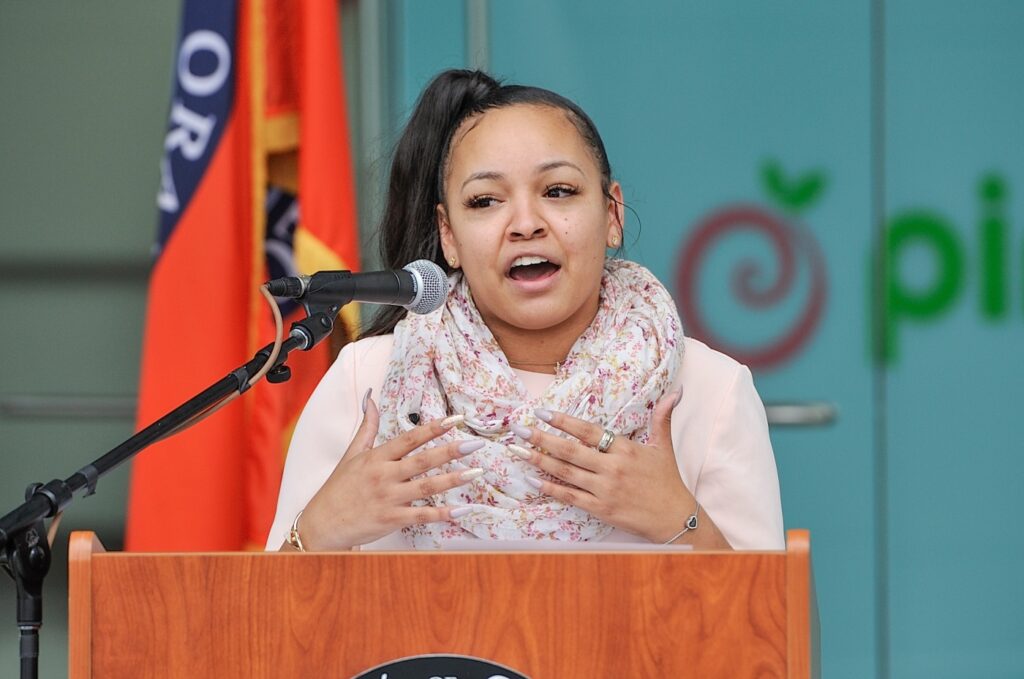
Our Golden State can be proud of its stunning natural beauty, abundant natural resources and diverse population. However, the grim reality is that California is one of the largest sites of human trafficking in the United States.
According to California’s Attorney General Rob Bonta: “Human trafficking is among the world’s fastest growing criminal enterprises. … It is a form of modern day slavery that profits from the exploitation of our most vulnerable populations.”
Given the knowledge of what trafficking does to a person, how can anyone consider it a non-serious crime? I can’t. It breaks my heart to know such horrific exploitation is occurring, which is why I introduced Senate Bill 14, to raise the consequences for traffickers who sell minor children for sex. The realities faced by those who are trafficked are harsh, yet the penalties for those doing the trafficking are not nearly harsh enough.
Senator Bradford’s (D-Gardena) “Ebony Alert” bill highlights the fact that in California, Black women and girls are at increased risk of being trafficked, and they go “missing” in disproportionately high numbers. One study found that 71% of children recovered from sex trafficking were Black. Data from the 2020 census shows that while people who are Black make up 13.4% of the nation’s population, nearly 40% of missing persons are people of color. Black children make up about 38% of all missing child cases. Together, Senator Bradford’s SB 673 “Ebony Alert” bill and SB 14 are two critical pieces of legislation that can help address the number of “missing” Black women and children in California.
Traffickers exploit children as young as 11 and 12, forcing them to sell their bodies for the trafficker’s financial gain. They use physical violence and coercion–death threats, threats to harm the victim’s family, food deprivation, physical beatings, rape, and burning–to force their victims to have sex with upwards of 15 strangers a day. Sadly, minors can also be lured into sex trafficking under the guise of a loving relationship.
Trafficking victims must meet daily sex or labor quotas before they’re permitted to sleep, eat or rest. In many instances, traffickers will brand their victims with facial or body tattoos to signify their ownership over the victim and the victim’s status as mere property.
According to the American Academy of Pediatrics, “victims are at increased risk of injury, sexual assault, infectious diseases, substance misuse, untreated chronic medical conditions, malnutrition, [PTSD], major depression and other mental health disorders, homicide, and suicide.”
In California, evidence of trafficking plays out in communities around the state, often in broad daylight. Some cities ignore the problem, trying merely to keep the “activity” within certain boundaries, “sex trafficking zones,” if you will.
The problem is that, unbelievably, California’s criminal code currently defines sex trafficking as a non-serious crime, which means it isn’t a strike under California’s “three strikes” law. Passing SB 14 would change that, adding the sex trafficking of minors to the list of crimes defined as serious under California law, making the crime a strike offense. It would strengthen protections for the most vulnerable victims of sex trafficking.
SB 14 has earned significant support from various community organizations, including 3Strands Global Foundation, National Center on Sexual Exploitations, Crime Victims United, National Center for Missing and Exploited Children, and several county district attorneys.
Sex traffickers don’t fear the current law because consequences are minimal. We must do more to protect women and children by making traffickers fear the consequences of preying on the vulnerable.
It’s about time this state–and this Legislature–starts to take seriously its obligation to protect victims of sex trafficking by prosecuting those who commit this horrific crime to the fullest extent.
Help make our communities safer by calling the members of the Assembly Public Safety Committee and urge them to support SB 14. Our children and their future depend upon it.
Shannon Grove represents California’s 12th Senate District which encompasses large portions of Fresno, Kern, and Tulare Counties. Follow her on Facebook and Twitter.
